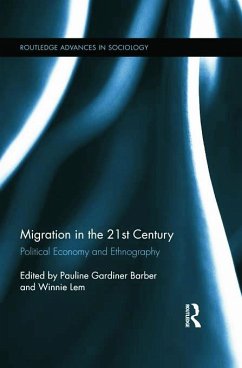This edited collection focuses on global migration in its inter-regional, international and transnational variants, and argues that contemporary migration scholarship is significantly advanced both within anthropology and beyond it when ethnography is theoretically engaged to grapple with the social consequences and asymmetries of twenty-first century capitalism's global modalities. Drawn from settings across the globe, case studies explore the nuanced formations of class and power within particular migration flows while addressing the complex analytics of a contemporary critical political economy of migration. Subjects include global migrants as capitalists, entrepreneurs and "cosmopolitans," as well as workers and immigrants who are subject to varying degrees of precariousness under intensified competition for profits within contemporary global economies. By re-addressing the question of the relationship between changes in global capitalism and migration, the book aims for a timely intervention into the debates on migration which have come to be one of the most contentious emotionally fraught issues in North America and Europe.
Hinweis: Dieser Artikel kann nur an eine deutsche Lieferadresse ausgeliefert werden.
Hinweis: Dieser Artikel kann nur an eine deutsche Lieferadresse ausgeliefert werden.








